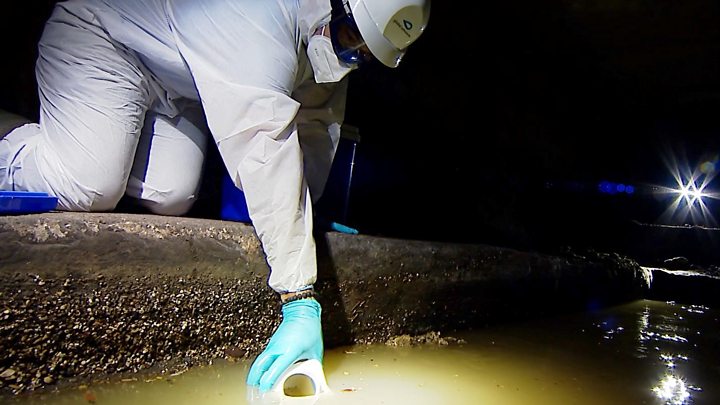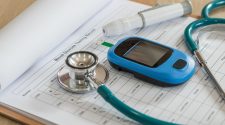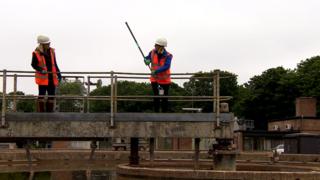Samples could be collected from specific points in the national network of wastewater-treatment plants
Sewage testing is being conducted across England in a bid to develop wastewater-based Covid-19 surveillance.
Scientists discovered early in the pandemic that infected people “shed” the virus in their faeces.
Further research concluded that wastewater sampling could provide a signal of a coronavirus outbreak up to a week earlier than medical testing.
The Department for the Environment, Food and Rural Affairs says this has begun at 44 wastewater treatment sites.
A Defra spokesperson said the government was working with scientists, water companies and the devolved governments in Scotland, Wales and Northern Ireland.
They would “monitor for fragments of coronavirus genetic material”.
Environment Secretary George Eustice said: “The aim of this new research is to give us a head start on where new outbreaks are likely to occur.
“Sampling is being carried out to further test the effectiveness of this new science. Research remains at an early stage and we are still refining our methods.”
Dr Andrew Singer from the UK Centre for Ecology and Hydrology is one of the lead scientists on a UK project to develop a standardised test to “count” the amount of genetic material from the coronavirus in a wastewater sample.
He told BBC News: “We would like to have confidence in saying that when we have an increase in virus numbers in the sewage from week to week, there are higher number of coronavirus cases.
“That means we will be able to look for trends…. to see if the release from lockdown maintains infection levels or are things moving in the wrong direction.”
Wastewater contains other contaminants that could affect the viral material, making accurate measurements tricky
Prof Davey Jones from Bangor University has been working with sewage treatment companies for five months – monitoring wastewater in some communities in Wales.
“All the evidence suggests that we can potentially see a signal in wastewater before we see a spike in infections in the community,” he told BBC News.
Scientists are continuing to fine-tune and reproduce a test before it can be rolled out as part of a Covid-19 alert system. Dr Singer pointed out that this wastewater epidemiology is a very “messy science”; by its nature, wastewater contains a lot of contaminants and samples vary widely, which makes it tricky to develop a one-size-fits all standard, accurate test.
And while many countries, including Spain, have started monitoring their wastewater, there have been some early problems – one result that suggested the coronavirus was present in Barcelona in March 2019 may have been the result of laboratory contamination.

Media playback is unsupported on your device
There are problems to be solved in order to maximise the accuracy and value of a sewage-based surveillance system: the propensity of the virus to break up when it is in water; the effect on the result of other contaminants; and how many sampling points need to be included in a UK-wide network in order to build up a useful picture of the outbreak.
“It seems obvious that we should be doing this,” said Dr Singer. “But it’s an approach that’s never been considered for an active outbreak.”
The World Health Organization has stressed that there is currently no evidence that coronavirus has been transmitted via sewerage systems.
Follow Victoria on Twitter

















